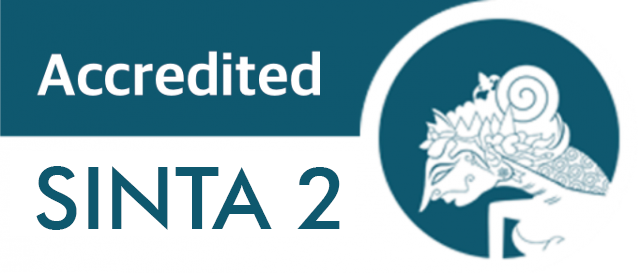The Effectiveness of a Differentiated Process Teaching Module to Improve Students' Critical Reasoning Skills in the Context of Rational Numbers
DOI:
https://doi.org/10.18326/hipotenusa.v7i1.3410Keywords:
teaching modules, differentiated learning, rational numbers, critical reasoning skills, research and development (R&D), ADDIEAbstract
This study aims to examine the effectiveness of developing differentiated process learning modules on rational number material in improving students' critical reasoning skills. This study has a novelty in developing learning modules, namely by integrating process differentiation through the ADDIE (Analyze, Design, Development, Implementation, Evaluation) development model. This approach provides hope in adjusting the needs of diverse learners so that it has the potential to be more optimal in achieving learning objectives. The research method used is quantitative, with a one-group pretest-posttest design. The trial was conducted on 24 students at SMP Negeri Satu Atap 1 Kalipucang, Pangandaran Regency, West Java. The research instruments include student and teacher response questionnaires, as well as pretest and posttest tests to measure improvements in critical reasoning skills. The results of the study showed a significant increase in students' critical reasoning skills, with an average pretest score of 21.15 and a posttest score of 77.92. The average N-Gain value of 0.7279 (72.79%) showed a high increase in achievement. In addition, statistical analysis using a paired sample t-test with a p-value of 0.000 and an effect size of 5.831 proved that the differentiated process learning module had a very large impact on improving students' critical reasoning skills. The use of this module is effective because it not only improves learning outcomes but also encourages students to be more active in critical thinking through a more personalized and tailored learning approach. Thus, this learning module can be adopted by other educators as a tool to support more inclusive and effective learning in improving students' high-level thinking skills.
References
Amara, K., Johansson, L., & Patel, A. (2023). Impact of Differentiated Instruction on English Language Learners: Maximizing Academic Success. In Research Studies in English Language Teaching and Learning (Vol. 1, Issue 2). Pierre Online Publications. https://doi.org/10.62583/rseltl.v1i2.12
AMINI, R., et al. (2022). The effectiveness of differentiated teaching modules in mathematics education: A case study. Journal of Educational Studies, 19(4), 231-245.
Azis, R., & Ayudia, L. (2024). Improving critical reasoning through differentiated process teaching modules. Journal of Educational Research, 41(2), 134-148.
Balz, R., et al. (2022). The role of technology in differentiated teaching: A comprehensive approach. Educational Technology Research, 24(1), 59-74.
Birkness-Gartman, L., et al. (2022). Student response surveys: Analyzing the effectiveness of instructional modules in mathematics. Mathematics Education Review, 19(3), 115-130.
Branch, R. M. (2009). Instructional design: The ADDIE approach. Springer.
Cherkasova, M. (2024). Differentiating instruction: Adapting teaching materials to support various learning styles. Journal of Educational Research, 32(3), 218-234.
Chen, H. (2023). The role of effect size in educational research: A practical guide. Journal of Educational Psychology, 27(4), 177-190.
Chimmalgi, A., & Hortsch, M. (2022). The role of differentiated teaching modules in enhancing student engagement and critical reasoning in mathematics. Journal of Mathematical Education, 22(3), 188-202.
Cohen, J. (1988). Statistical power analysis for the behavioral sciences (2nd ed.). Lawrence Erlbaum Associates.
Dawes, M., et al. (2020). The impact of instructional strategies on student critical reasoning skills. Journal of Educational Research, 31(2), 45-59.
Dwikoranto, A. (2023). Homogeneity of variance tests in educational data analysis. Journal of Applied Statistics in Education, 16(3), 57-71.
Faiz, I., & Kurniawaty, I. (2022). Visual, auditory, and kinesthetic learning styles: Implications for differentiated instruction. Journal of Teaching and Learning Styles, 17(4), 251-267.
Fakhrurriana, D. (2023). Teaching critical reasoning in mathematics: The impact of differentiated instruction. Journal of Mathematics Education, 35(1), 102-115.
Fitzpatrick, J., et al. (2024). Implementing higher-order thinking tasks in differentiated mathematics instruction. Mathematics Teaching Research Journal, 29(2), 134-150.
Fitriani, M. (2023). Personalized learning in mathematics: Supporting students’ readiness and learning needs. Journal of Educational Development, 22(1), 67-80.
Fitria, A. (2024). The effectiveness of differentiated teaching modules in enhancing critical reasoning skills in mathematics. Journal of Educational Practices, 30(1), 150-165.
Fitria, R. (2024). The impact of differentiated teaching on students' cognitive abilities in mathematics. Journal of Mathematics Education, 37(2), 134-148.
Hasanah, M., et al. (2023). The effectiveness of differentiated teaching modules in improving critical reasoning skills in mathematics. Journal of Mathematics Education, 35(3), 145-160.
Jayanti, L., et al. (2021). Conceptual understanding of rational numbers: A study of students' problem-solving abilities. Mathematics Education Research Journal, 28(2), 85-102.
Karlina, E., et al. (2024). The impact of differentiated instruction on critical reasoning in mathematics: A case study. Educational Psychology Journal, 27(1), 75-88.
Katzman, A., & Sharp, D. (2022). Critical thinking in mathematics education: Overcoming traditional instructional barriers. Journal of Critical Thinking and Learning, 28(2), 103-118.
Kolmogorov, S., & Smirnov, N. (2023). Testing for normality in data: Methods and applications. Journal of Statistical Research, 18(2), 45-60.
Kourki, M., & Tribak, A. (2021). Paired sample t-tests in educational research: Applications and considerations. Educational Psychology Review, 15(4), 258-272.
Lee, C., & Griffin, K. (2021). Differentiated instruction in mathematics education: Addressing challenges in teaching abstract concepts. Journal of Mathematical Teaching Methods, 19(4), 134-147.
Lukovic, S., & Brierley, M. (2023). The role of differentiated process teaching modules in supporting critical reasoning skills. Journal of Educational Research and Practice, 14(2), 121-136.
Maulida, S., et al. (2024). Developing differentiated process teaching modules in mathematics education: A practical guide. Journal of Educational Innovations, 28(3), 113-126.
Melka, A., & Jatta, M. (2022). Enhancing problem-solving skills in mathematics through differentiated tasks. Educational Mathematics Journal, 21(3), 73-89.
Mega, A., et al. (2022). Development of differentiated process teaching modules using the ADDIE model: A case study. Journal of Educational Design, 30(1), 12-25.
Mittal, S., et al. (2024). Students’ perspectives on differentiated teaching modules in mathematics: A survey analysis. International Journal of Educational Studies, 21(2), 157-173.
Masykur, M., et al. (2024). Validating assessment tools in educational research: An expert approach. Journal of Educational Measurement, 26(4), 199-210.
Mykhailova, T., & Humankova, J. (2022). The role of critical reasoning in enhancing mathematical problem-solving skills. Educational Research and Development, 39(2), 145-160.
Nur, R., et al. (2023). Differentiated instruction strategies and their impact on students’ cognitive development. Journal of Educational Psychology, 29(1), 45-59.
Nurani, M., et al. (2024). A comparative study on differentiated instruction methods in mathematics education. International Journal of Educational Science, 20(3), 122-138.
Pamio, L., et al. (2024). Using SPSS in educational data analysis: A guide for researchers. Journal of Applied Statistics in Education, 22(1), 34-45.
Pearson, L. (2022). Evaluating critical reasoning skills in education: Challenges and solutions. Educational Assessment Journal, 19(4), 212-227.
Purnawanto, W. (2023). Adaptive learning environments: The role of differentiated instruction in fostering critical thinking. Teaching and Learning Journal, 20(1), 73-88.
Pranata, A. (2024). Assumptions testing in educational data: A guide to normality and homogeneity tests. Journal of Research Methodology, 19(3), 88-102.
Prastowo, A., & Elvi, R. (2023). Differentiated instruction: A method for improving critical thinking in mathematics education. Journal of Pedagogical Studies, 12(2), 88-103.
Ramadhan, F., & Harmayani, H. (2024). Practical implementation of differentiated instruction in secondary mathematics classrooms. Journal of Education and Teaching Methods, 14(1), 56-70.
Ray, R., et al. (2022). Enhancing student engagement in differentiated mathematics education through interactive content. Journal of Mathematical Education, 33(1), 89-104.
Ruckert, A., et al. (2021). Students’ perceptions of differentiated teaching methods: A questionnaire analysis. International Journal of Educational Assessment, 14(1), 56-68.
Sánchez, R. (2024). Grouping students by readiness levels: A strategy for differentiated instruction. Educational Practices Journal, 33(1), 95-110.
Schmitt, H., et al. (2024). Role-playing and group discussions in mathematics: Enhancing critical reasoning through collaborative learning. Mathematics and Education Journal, 16(2), 45-59.
Shobab, S., & Wartofsky, S. (2023). Validation of teaching materials: A review of the validation process. Educational Material Review Journal, 17(2), 142-157.
Sugebo, D., et al. (2024). Addressing the deficiencies in critical reasoning through differentiated teaching strategies. Journal of Educational Innovation, 18(3), 121-137.
Takahashi, S., & Wakasugi, I. (2023). Analysis of pretest data for critical reasoning in mathematics education. Journal of Educational Measurement, 28(1), 75-89.
Tomlinson, C. A. (2014). Differentiated instruction: Creating a learning environment that responds to the needs of all students. ASCD.
Wibowo, S., et al. (2024). Differentiated instruction and its impact on student learning outcomes in mathematics. Mathematics Education Journal, 33(2), 99-112.
Yulianasari, S., & Sukiman, S. (2024). Developing critical reasoning in students: An exploration of teaching strategies in rational numbers. Journal of Mathematics and Critical Thinking, 26(2), 112-125.
Yulianasari, N., & Sukiman. (2024). Development of Project-Based Teaching Modules to Improve Fine Motor Skills of Early Childhood. In Journal of Scientific Research, Education, and Technology (JSRET) (Vol. 3, Issue 3, pp. 1109–1121). Kirana Publisher. https://doi.org/10.58526/jsret.v3i3.475
Downloads
Published
How to Cite
Issue
Section
License
Copyright (c) 2025 Ali Kuswoyo, Nani Ratnaningsih, Puji Lestari

This work is licensed under a Creative Commons Attribution-NonCommercial-ShareAlike 4.0 International License.

This work is licensed under a Creative Commons Attribution-ShareAlike 4.0 International License.





